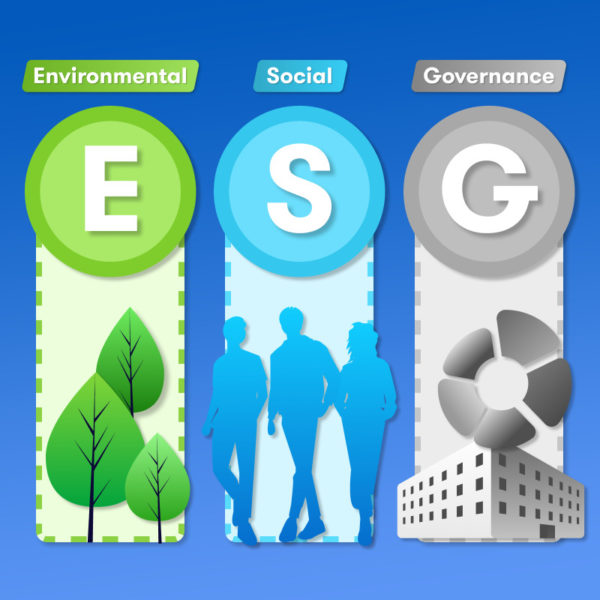5 Corporate Sustainability Trends That Are Growing in 2023


Share this article

We have come very far as humans. We went from dwelling in caves to living in skyscrapers. From eating raw food to ordering a fresh pizza that is delivered within 30 minutes. From wearing animal hides to wearing designer clothes.
But here’s the thing: these privileges came with a very big price. Even though we made our lives easier with science, technology, and industrialization, we also kind of screwed up our planet. Our only home in this universe is now filled with pollution, waste, overconsumption, greed, and workplaces with questionable conditions.
But things are changing now for good. Corporations and consumers have stepped up to create a sustainable world through corporate sustainability. So, what exactly is corporate sustainability? And what are some sustainability trends that you can expect to grow in the future?
Let’s find out.
But here’s the thing: these privileges came with a very big price. Even though we made our lives easier with science, technology, and industrialization, we also kind of screwed up our planet. Our only home in this universe is now filled with pollution, waste, overconsumption, greed, and workplaces with questionable conditions.
But things are changing now for good. Corporations and consumers have stepped up to create a sustainable world through corporate sustainability. So, what exactly is corporate sustainability? And what are some sustainability trends that you can expect to grow in the future?
Let’s find out.
What Is Corporate Sustainability?
Before we dive into sustainability trends for 2023, let’s first discuss what corporate sustainability actually entails. In short, corporate sustainability includes practices employed by corporations to conduct business in a way that is beneficial to the environment and society. Just a few decades ago, things were quite different. Corporations didn’t give much thought to their environmental footprint, employee rights, or the well-being of our society. Profit was generally the number one priority.
Fast forward to the present day: the way corporations do business has changed drastically. Sustainability is a key aspect of conducting business in modern times. In fact, most businesses that don’t incorporate sustainable practices are unlikely to succeed or remain successful in the long run. Now, let’s discuss the three pillars of corporate sustainability.
For instance, if you go to Nike’s website to buy a shoe, you’ll find that the description of the product illustrates corporate sustainability. To be precise, there is a whole “How This Was Made” section for each product. In this section, the world-renowned shoe brand mentions what percentage of raw material used was sustainable. Besides this, they also mention what impact a particular product has on the environment.
Fast forward to the present day: the way corporations do business has changed drastically. Sustainability is a key aspect of conducting business in modern times. In fact, most businesses that don’t incorporate sustainable practices are unlikely to succeed or remain successful in the long run. Now, let’s discuss the three pillars of corporate sustainability.
1. The environmental pillar
This pillar includes practices to reduce carbon footprint, minimize waste, decrease water usage, etc. Back in the day, big industries used to create a lot of air, water, and noise pollution. Simply because things were massively unregulated in the olden times, and that’s why corporations got away with it. Not anymore though. In the 2020s, things are way different when it comes to environmental impact.For instance, if you go to Nike’s website to buy a shoe, you’ll find that the description of the product illustrates corporate sustainability. To be precise, there is a whole “How This Was Made” section for each product. In this section, the world-renowned shoe brand mentions what percentage of raw material used was sustainable. Besides this, they also mention what impact a particular product has on the environment.
KEY TAKEAWAYS
- Corporate sustainability includes practices employed by corporations to conduct business in a way that is beneficial to the environment and society.
- Corporate sustainability has three pillars: the environmental pillar, the social pillar, and the economic pillar.
- Reducing carbon emissions is one of the top priorities of countries worldwide. A handful of corporations are leading the way by significantly decreasing their carbon emissions.
- Workers' rights, ethical sourcing, and waste reduction are all major sustainability trends businesses should look for in the future.
- The sustainability consulting market is worth billions of dollars in the western world and can be expected to keep growing.
2. The social pillar
Workers have fought for their rights since time immemorial. As a matter of fact, there was no concept of the 40-hour workweek until 1940. And as a result, people used to work crazy hours in difficult conditions. But through protests and activism, they gained the right to work only 40 hours a week and spend the rest of the time as they wished.In the modern day, we have progressed far more. The social pillar is an important part of corporate sustainability. Companies are obligated to treat employees and other stakeholders fairly. This includes providing a fair and timely salary, sick leaves, maternity leave, and mental health assistance. Businesses that outsource their tasks to developing nations must also keep sustainability in mind. For instance, they have to ensure that no child laborers are employed and that workers have dignity and rights.
3. The economic pillar
This one is related more to business and less to external factors like the environment and society. You see, to be able to sustain a business, it must be profitable. A business has to figure out a way to remain profitable without harming the environment or society. Understand this: profit still matters, but it’s not the only thing that matters (as it did in the past). This is when sustainability consultants can help. They can assist businesses with sustainability strategies, carbon emissions, curricular economy practices, supply chain reduction, and much more. As a practical example, they can strategize an environmentally friendly way for manufacturing which could also reduce the cost of production. More on this later.
This is when sustainability consultants can help. They can assist businesses with sustainability strategies, carbon emissions, curricular economy practices, supply chain reduction, and much more. As a practical example, they can strategize an environmentally friendly way for manufacturing which could also reduce the cost of production. More on this later. 5 Corporate Sustainability Trends to Look For in 2023
Now that you know what corporate sustainability actually means, let’s discuss the top 5 trends that could dictate sustainability in the near future.
For example, Apple has set a target to make its supply chain carbon-neutral by 2030. General Motors, on the other hand, needs 10 more years. The company has mentioned its commitment to achieving carbon neutrality by 2040. However, as of now, it seems like only the big players are working on becoming carbon neutral. But this trend is expected to grow in the future and you will see more companies joining in.
And organizations are also taking this seriously. For instance, NASA published its Diversity, Equity, Inclusion, & Accessibility (DEIA) plan for 2022-26. As mentioned in the highly detailed document, their four strategic goals are as follows: workforce diversity; workforce equity and inclusion (employee experience); accessibility and accommodation; and DEIA integration into the NASA mission.
Never in the history of mankind have organizations cared so much about their employees. Once again, this is the new norm and will likely spread to smaller businesses as well.
Corporate giants like Amazon are teaching the world how to create a circular economy—an economy in which there’s a negligible waste. Here’s what the e-commerce giant did. By reducing the weight of outbound packaging by 33%, the company has successfully eliminated 900,000 tons of packaging material. This is the same as 1.6 billion shipping boxes. Truly commendable.
1. Reduced carbon emission
Carbon emission is a topic that’s quite often in the news, and rightfully so. Carbon emissions remain one of the biggest hurdles in the way of complete sustainability. But many corporations are rolling up their sleeves to make a change.For example, Apple has set a target to make its supply chain carbon-neutral by 2030. General Motors, on the other hand, needs 10 more years. The company has mentioned its commitment to achieving carbon neutrality by 2040. However, as of now, it seems like only the big players are working on becoming carbon neutral. But this trend is expected to grow in the future and you will see more companies joining in.
2. A new breed of workforce
As mentioned previously, the employees of today are way different from the previous century. The modern workforce is diverse, global, and purpose-driven. Gone are the days when people used to work only to provide for their families. Workers today want flexibility, occupational safety, and growth opportunities.And organizations are also taking this seriously. For instance, NASA published its Diversity, Equity, Inclusion, & Accessibility (DEIA) plan for 2022-26. As mentioned in the highly detailed document, their four strategic goals are as follows: workforce diversity; workforce equity and inclusion (employee experience); accessibility and accommodation; and DEIA integration into the NASA mission.
Never in the history of mankind have organizations cared so much about their employees. Once again, this is the new norm and will likely spread to smaller businesses as well.
3. Minimizing waste
Waste can only be minimized, not completely eliminated. That’s just the harsh truth. However, by using intelligent sustainability practices, we can minimize waste to the point where it’s no longer a threat.Corporate giants like Amazon are teaching the world how to create a circular economy—an economy in which there’s a negligible waste. Here’s what the e-commerce giant did. By reducing the weight of outbound packaging by 33%, the company has successfully eliminated 900,000 tons of packaging material. This is the same as 1.6 billion shipping boxes. Truly commendable.
4. Ethical sourcing and manufacturing
If you have recently bought an electronic item, a new pair of jeans, or even a packet of ground coffee, chances are, it was manufactured in a foreign country. When it comes to sustainability, western companies must maintain the same standards domestically as well as internationally. That’s when ethical sourcing comes into play.Patagonia, for example, has shared how their products are manufactured offshore and how they treat foreign workers in their country. The company claims that as of 2020, 39% of their apparel assembly factories overseas are paying a living wage to workers. They also state that all their ‘down’, which is an animal-origin material that’s used in jackets, is sourced ethically. The boldest of all claims: the company only used renewable energy sources in their U.S. locations.
Ethical sourcing has been in the picture for the past few years, and more businesses can be expected to come on board.
5. Hiring sustainability experts
According to Statista, the revenue for environmental consulting in the U.K. jumped from £1,276 million in 2011 to £1,866 million in 2021. Given the current state of affairs, this number can be expected to rise not only in the U.K. but also in the European Union. And in the United States, the environmental consulting services market was worth a mindblowing $56,394.3 million in 2021.Well, that is a whole lot of money. It means that businesses aren’t messing around anymore. They are serious about corporate sustainability. And if you’re one of these businesses, you may be wondering: how to find sustainability consultants?
Don’t worry, it’s actually very simple. Here at Consultport, we have over 10,000 consultants in our talent pool. Each of our consultants is handpicked and is an expert in their field. We are on a mission to connect top freelance consultants with businesses around the world. If you’re keen to learn more, get in touch with us now. Your next sustainability consultant maybe just a few clicks away.
Share this article
Premium content,
on a weekly basis.
on a weekly basis.
Subscription implies consent to our privacy policy.
×


Premium Content, on a Weekly Basis
Subscribe to the Consultport Blog for expert insights on consulting, digital transformation, and the future of work, delivered straight to your inbox.

Discover our Consultant's Expertise
Ready to get access to the world’s best consultants?
